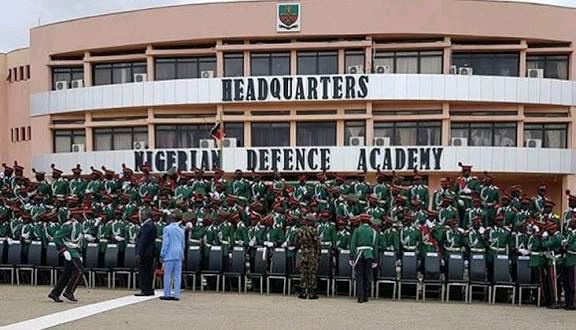Tin Can Island Customs: Driving Budget Implementation through Surpassing Revenue Target

The humid Lagos air hung heavy over the bustling Tin Can Island Port, a symphony of clanking metal, shouting dockworkers, and the constant drone of heavy machinery. Inside the crisp, air-conditioned office of Comptroller Adekunle Musa, the mood was one of quiet satisfaction. A neatly typed report lay on his mahogany desk, its figures a testament to the tireless efforts of his command: N347 billion.
The first quarter of 2025 had been a demanding one for the Nigeria Customs Service (NCS), Tin Can Island Command. The global economic landscape remained volatile, with fluctuating exchange rates and intricate trade policies constantly requiring careful navigation. Smuggling attempts, in their ever-evolving forms, continued to test the vigilance of the officers. Yet, despite these challenges, the command had not only met but exceeded its revenue target.
Comptroller Musa leaned back in his chair, the faint hum of the port a distant backdrop to his thoughts. This achievement wasn’t just about numbers; it represented the dedication of hundreds of customs officers, the meticulous scrutiny of countless import and export documents, and the unwavering commitment to safeguarding Nigeria’s economic interests.
He remembered the early days of January, the post-holiday rush bringing a surge of cargo. The pressure had been immense, with long queues of trucks snaking around the port access roads. His officers had worked tirelessly, often late into the night, ensuring the smooth flow of legitimate trade while maintaining a strict eye for any illicit activities.
One particular incident stood out. A container declared as carrying household goods had raised suspicion due to inconsistencies in the accompanying documents. The intelligence unit, working on a tip-off, had flagged it for a thorough examination. The physical inspection, conducted under the watchful eyes of several officers, revealed a false bottom concealing a substantial quantity of prohibited pharmaceuticals. The seizure not only prevented potentially harmful substances from entering the Nigerian market but also sent a strong message to those who sought to circumvent the law.
Beyond the dramatic interceptions, the bulk of the revenue collection came from the diligent application of tariffs and duties on legitimate imports. The various units within the command – valuation, classification, assessment – had worked in seamless coordination, ensuring accurate assessments and preventing revenue leakages. Comptroller Musa had personally emphasized the importance of transparency and efficiency, knowing that these were crucial in building trust with stakeholders and facilitating trade.
The implementation of technology had also played a significant role. The upgraded electronic documentation system had streamlined processes, reducing paperwork and minimizing human error. Real-time data analysis allowed for better targeting of high-risk consignments, making the work of the enforcement units more effective.
However, the journey hadn’t been without its hurdles. Infrastructure challenges, particularly the state of the port access roads, continued to cause delays and frustration for both customs officers and port users. Comptroller Musa had been in constant dialogue with relevant government agencies, advocating for urgent repairs and upgrades to improve efficiency.
Furthermore, the persistent attempts at bribery and corruption remained a concern. Comptroller Musa had maintained a zero-tolerance policy, emphasizing the importance of integrity and ethical conduct among his officers. Regular training sessions on anti-corruption measures and a robust internal monitoring system were in place to deter and detect any wrongdoing.
The positive revenue figures for the first quarter were a morale booster for the entire command. It validated their hard work and reaffirmed their commitment to their responsibilities. Comptroller Musa knew that this success was not an end in itself but rather a stepping stone towards even greater achievements.
Looking ahead, he had several key priorities. Strengthening collaboration with other security agencies operating at the port was paramount in the fight against transnational crime. Investing in further training and capacity building for his officers was essential to keep them abreast of evolving trade practices and smuggling techniques. And continuing to advocate for improvements in port infrastructure remained a crucial long-term goal.
As the sun began its slow descent over the Lagos lagoon, casting long shadows across the bustling port, Comptroller Musa reread the revenue report. N347 billion. It was more than just a number; it was a symbol of dedication, resilience, and the unwavering commitment of the Tin Can Island Command to the economic prosperity and security of Nigeria. He knew the challenges ahead would be significant, but with the same spirit of diligence and unity, he was confident that his command would continue to rise to the occasion. The rhythmic clang of containers being loaded onto ships continued, a constant reminder of the vital role the Nigeria Customs Service played in the nation’s economic heartbeat.









